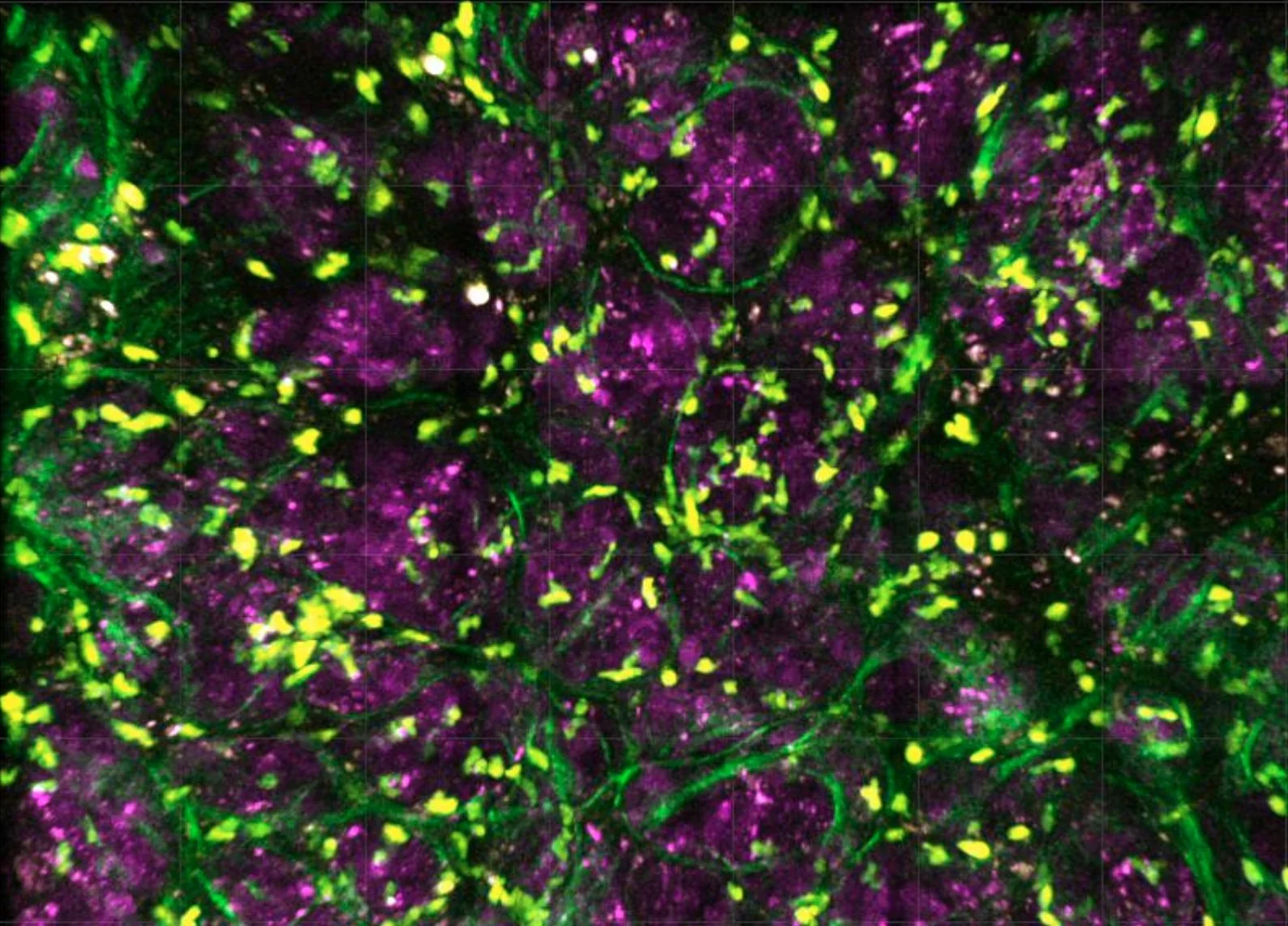Welcome to the UCSF Immunoprofiler
Theoretically, the immune system may exist in an infinite number of “states”, but there are likely only a few immune states that are compatible with life. Across various patterns of immune infiltration, organization, and gene expression, some features may ‘float’ but others may be more finite. These finite recurring patterns, or “immunomes”, may be found across datasets that span different scales and diseases. We propose diseases are ultimately discrete forms of immunopathology. Thus, by understanding the nature of the immune response, we will determine how to treat diseases and provide new targets for the next round of immunotherapies.
CANCER
The immune system is very good at defining subtle differences in our own self and can be a friend or foe to our cells and tissues. Our bodies are “superorganisms,” entire ecosystems of individual cells and microbes that live in and on us in relative harmony. The immune system can be highly destructive, and it will fight for us or against us depending on the information it receives. New cancer immunotherapy drugs aim to give the immune system extra cues which will flip it out of its “permissive” state and license it to destroy cancer. When successful, immunity does all of the work to eliminate the cancer, just as it would if it were eliminating an infectious agent like a virus, bacterium, or other harmful microorganism. Immunoprofiler has nucleated a unique industry-academic partnership to understand the immunological basis for cancer.
AUTOIMMUNITY
Inspired by the success achieved profiling cancer, the team set out to develop a program that would profile autoimmune samples using a combination of proteomic, transcriptomic, epigenomic, and structural assays. The team utilizes streams of fresh clinical samples, which allows for the prospective collection of matched blood and tissue samples. In addition to collecting highly valuable clinical specimens, this also permits more uniform sample collection and processing, and ensures the ability to conduct cutting edge experimental assays. We anticipate assembling a consortium with at least four partners, enabling coverage of ~1,500 samples from patients with autoimmune diseases.
Custom discovery
Recognizing that the immune system is the source of emerging opportunities in the treatment of cancers, we have leveraged our analytical immunoprofiling platform for custom analyses. The methods we use are similar to what we have done for our large cohorts and include the high-dimensional DNA and RNA sequencing of a tumor’s complete composition—learning about the programs that are active in every cell in the tumor.
February 17, 2021
UCSF and Eli Lilly launched the new initiative, called AutoImmunoprofiler, which inherits the most successful aspects of its predecessor and adapts them to the study of autoimmune disease (Link).
August 5, 2020
NCI OCG Guest Editorial on the Immunoprofiler Consortium. (Link).
January 1, 2019
With our 5th and final consortia partner joining Immunoprofiler, our Cancer program in its current iteration is now closed. Immunoprofiler also adds a new assay (CyTOF) to its repertoire as part of its broad profiling trajectory
April 23, 2018
Investigators at the UCSF Immunoprofiler and collaborators review the current understanding of classes within the tumor immune microenvironment and its impact on immunotherapies (Link).







